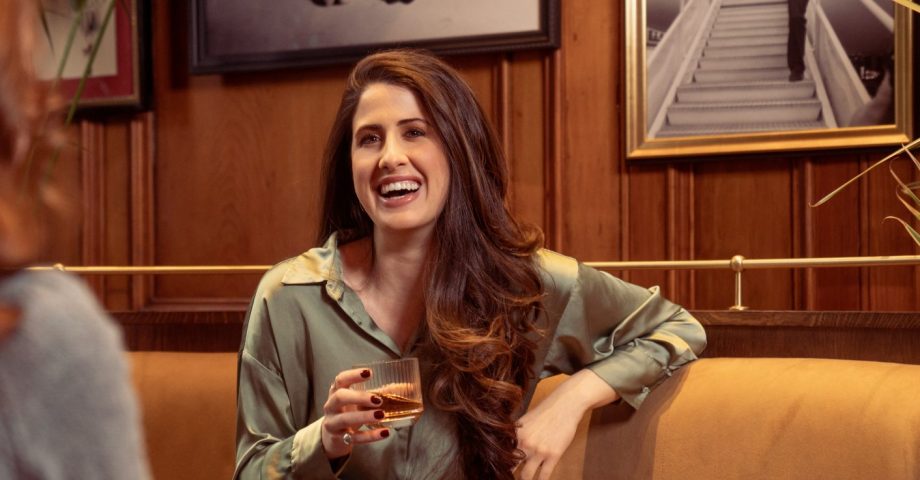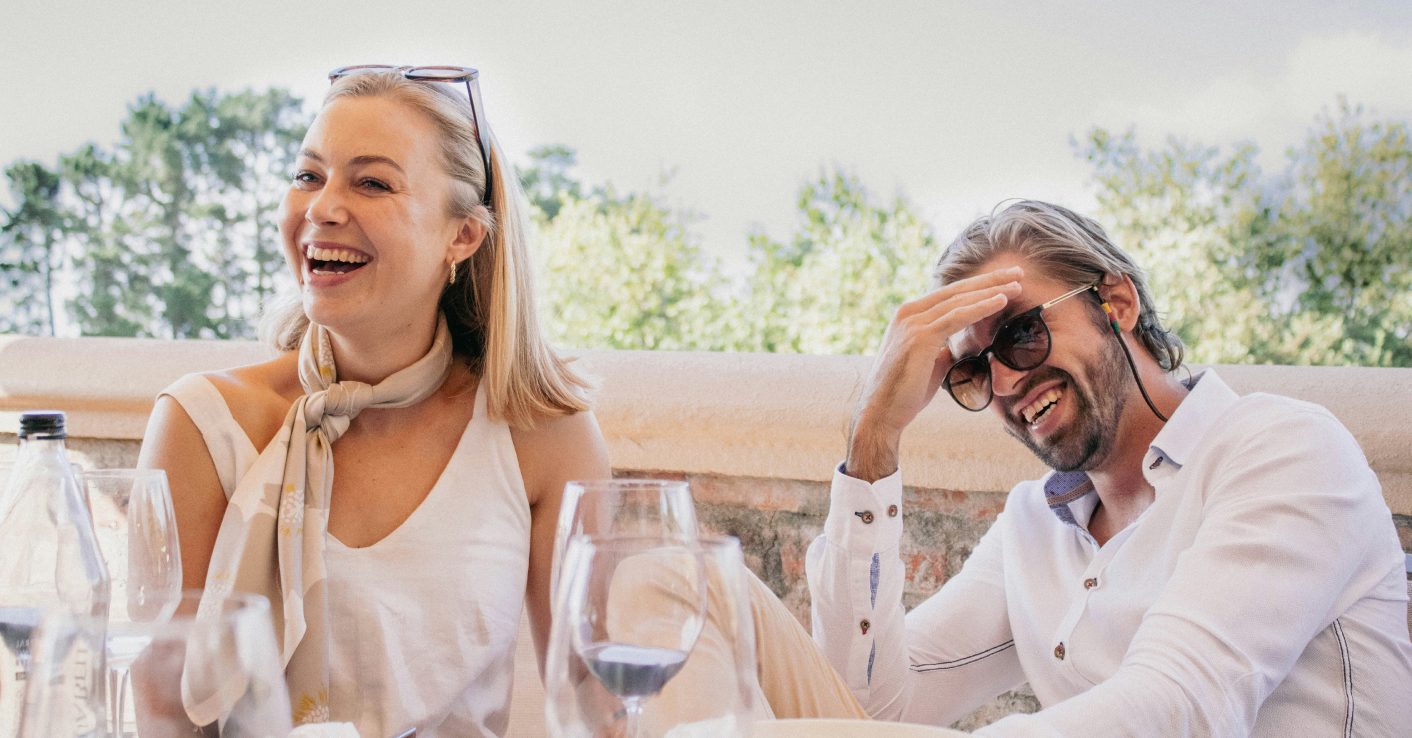Last Updated on April 17, 2025
You wake up determined to cut back. “That’s it,” you tell yourself. “I need a break.” By 5 p.m., the resolve starts to blur. And by 9 p.m., you’re a few drinks in, brushing aside the promise you made to yourself just hours earlier.
Sound familiar? You’re not alone—and it doesn’t mean you’re weak.
That sinking feeling of regret after drinking isn’t just about the alcohol itself. It’s often a signal of an internal tug-of-war between different parts of you, parts that want very different things at different times of the day. The good news? Once you understand why this happens, you can start to change it.
Watch The Related Podcast
You’re Not One Person All Day Long
Psychologists have long understood that humans operate with what’s called multiple selves. This idea, a focus of researcher George Loewenstein, posits that you’re actually many versions of yourself throughout the day. There’s the goal-setting morning you, the afternoon you who starts negotiating shortcuts, and the evening you who wants to unwind and forget the rules.
These selves each have their own priorities. One wants long-term health. The other just wants to relax. That’s why a decision made at 8 a.m., like “no drinks tonight,” can feel completely irrelevant by 8 p.m..
So, how can you avoid making drinking decisions you’ll regret later? Start by understanding what’s pulling the strings.
1. Your Willpower Gets Depleted Over the Day
Decision fatigue is a psychological phenomenon: The more choices you make throughout the day, the harder each decision becomes. You start the day with a full tank of mental energy, but every email response, snack choice, and minor dilemma drains it.
By evening, when you’re faced with deciding whether or not to drink, your willpower is often totally depleted. That’s why vague promises like “I’ll just drink less tonight” tend not to work. You simply don’t have the mental capacity to make a clear choice.
What to Do Instead:
Decide before the day gets going. This technique, known as precommitment, is an effective strategy for alcohol moderation. Decide in the morning how many drinks you’ll have (if any), what kind of drinks, and in what setting.
Examples:
- “I only drink on weekends.”
- “If I drink, I’ll start with a non-alcoholic option.”
- “I don’t keep alcohol at home.”
Reducing the number of in-the-moment choices dramatically increases your chances of sticking to your goals and avoiding that familiar regret after drinking.
2. Your Emotions Hijack Your Rational Brain
Even if you’ve planned ahead, emotions can still take the wheel, especially when you’re in what psychologists call a “hot” state. A “cold” state is when you’re calm and clear-headed. But when you’re stressed, excited, or in a highly social environment, your emotional, “hot” brain becomes dominant.
This hot-cold gap is why you might feel totally in control during your lunch break, but act impulsively at happy hour. The “you” at noon simply can’t predict how different things will feel when raw emotions are involved.
What to Do Instead:
Build in a pause. Create a 15-minute rule before you take that first drink. Use the time to check in with yourself:
- “Do I really want this drink?”
- “Am I drinking because I’m tired, stressed, or just going along with my friends?”
- “Will I be happy with this decision tomorrow?”
A few mindful minutes can shift you from reactive to intentional, making it much less likely you’ll feel regret after drinking later.
3. Your Drinking Identity Changes Based on Who You’re With
Ever notice how you drink differently depending on your company?
Around coworkers, you may keep things classy. But throw in your old college friends or a weekend vacation, and suddenly it’s like you’ve time-traveled back to your party days. That’s called social identity theory, and it explains how our behavior adapts to match the group we’re in.
Without even realizing it, your brain is adjusting your drinking behavior based on what feels “normal” for that setting.
What to Do Instead:
Use the friend filter. Before heading out, consider who you’ll be hanging out with. Are they heavy drinkers? If so, consider inviting someone who shares your goals. They can be a helpful ally in times of social pressure.
It can also be valuable to define your drinking identity before the night begins. Say to yourself: “I’m a mindful drinker. I can enjoy myself without going overboard.” There’s real science behind the power of this kind of self-talk. When you show up with a clear intention, you’re less likely to get swept up in the crowd and more likely to avoid that regret after drinking the next day.
How to Turn Awareness into Action
Now that you know why your drinking decisions shift throughout the day, the key is to stop relying on willpower alone and start building systems that support your goals.
Here are a few practical ways to stay on track:
- Shrink your decisions: The fewer choices you leave for nighttime, the better. Make your drinking plan in the morning, not in the moment.
- Create friction: Make it slightly harder to drink impulsively. Don’t stock alcohol at home, leave your credit card behind, or set a drink limit in advance.
- Practice the pause: A 15-minute delay can break the autopilot habit loop and give you space to make a conscious choice.
- Pre-frame your identity: Own the role of someone who drinks mindfully. This simple mindset shift can guide your behavior in social settings.
Reflect the next day: When you wake up without regret after drinking—or with it—use that as feedback. What worked? What didn’t? Use each experience to fine-tune your approach.
The Power of Harm Reduction
Mindful drinking doesn’t have to be all-or-nothing. Harm reduction is a proven approach used in public health that’s all about minimizing risks, not demanding perfection.
Some simple harm reduction strategies you can try this week:
- Eat before you drink. It slows alcohol absorption and reduces its impact.
- Alternate alcoholic and non-alcoholic drinks. (Also called “zebra striping.”)
- Switch to lower ABV drinks. A spritz or a session IPA can help you moderate more easily.
- Slow your pace. More time between drinks means less impact overall.
These aren’t just hacks—they’re lifestyle shifts that add up over time. And they fit right into the Sunnyside method of mindful, goal-oriented moderation.
The Bottom Line About Regret After Drinking
You’re not inconsistent. You’re human.
Your energy, emotions, and environment all play a role in your drinking decisions. Once you understand this, you can stop beating yourself up and start building a plan that works.
By recognizing your triggers, precommitting to your goals, and defining your identity, you’ll shift from reacting to leading. And in doing so, you’ll start experiencing more pride and less regret after drinking.
You already have the tools. Now it’s time to use them. Get started with a 15-day free trial of Sunnyside.




